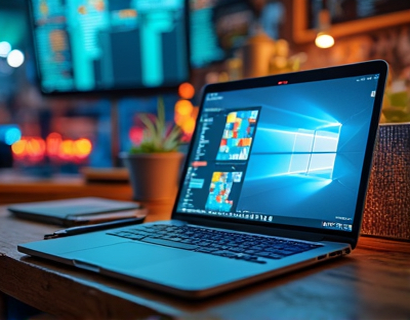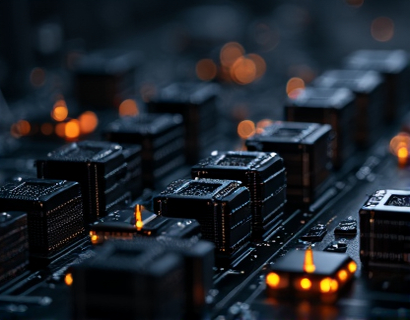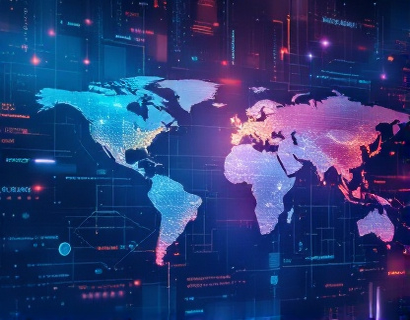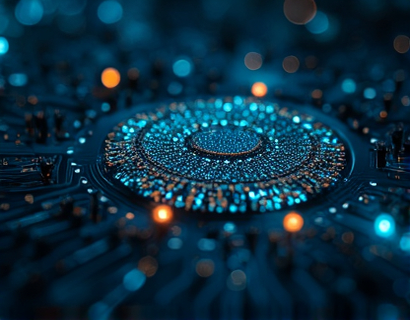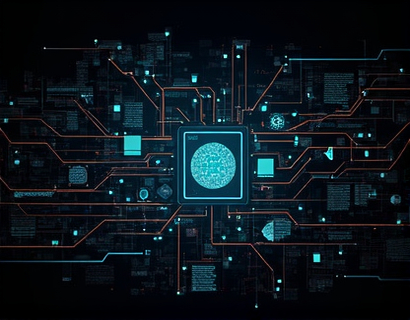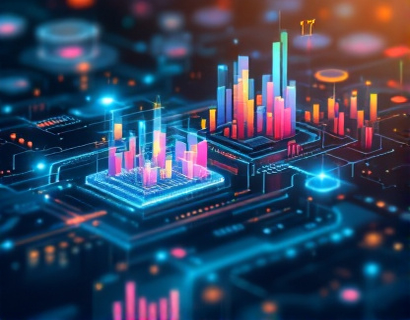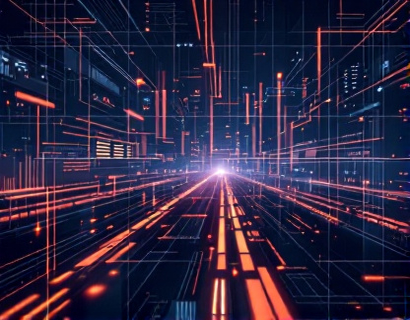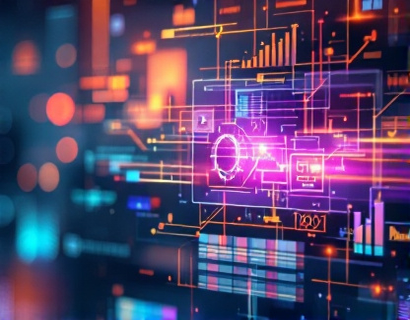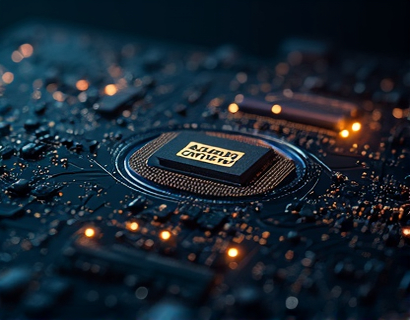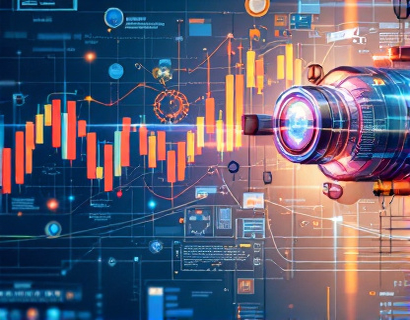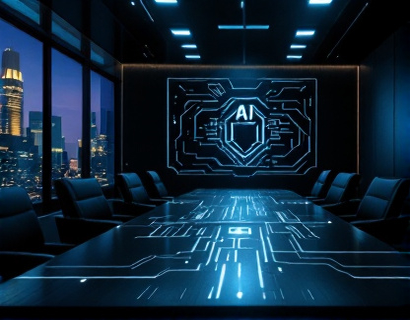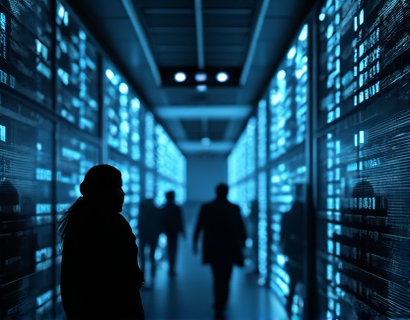Exploring the Synergy Between Crypto and AI: A Catalyst for Digital Transformation
The intersection of cryptocurrency and artificial intelligence (AI) represents a frontier of innovation, promising to redefine digital transformation. This synergy is not merely a convergence of two advanced technologies but a powerful combination that enhances user experiences, drives efficiency, and opens new avenues for growth. As we delve into this topic, it's essential to understand how these technologies complement each other and the transformative impact they have on various industries.
Understanding Cryptocurrency and AI
Cryptocurrency, often associated with blockchain technology, is a digital or virtual currency that uses cryptography for security. It operates on a decentralized network, eliminating the need for intermediaries like banks. This decentralized nature ensures transparency, security, and resilience against fraud.
Artificial intelligence, on the other hand, involves the simulation of human intelligence processes by machines, particularly computer systems. These processes include learning (the acquisition of information and rules for using it), reasoning (using rules to reach approximate or definite conclusions), and self-correction. AI's capabilities range from simple data analysis to complex decision-making and autonomous operations.
The combination of these two technologies creates a powerful toolset for innovation. Cryptocurrency provides a secure and transparent medium for transactions, while AI enhances these transactions through intelligent algorithms and data analysis. Together, they can create more secure, efficient, and user-friendly digital solutions.
The Role of Blockchain in AI
Blockchain technology, the backbone of cryptocurrency, offers a decentralized and immutable ledger that can significantly benefit AI systems. One of the primary challenges in AI is data management and security. Blockchain can address these issues by providing a secure and transparent way to store and share data. This ensures that AI systems have access to high-quality, tamper-proof data, which is crucial for training and validating models.
Moreover, blockchain can facilitate decentralized AI networks where multiple parties can collaborate on AI tasks without central control. This decentralization can lead to more robust and resilient AI systems, as the risk of a single point of failure is minimized. For instance, in a decentralized AI marketplace, developers can create and sell AI models securely, ensuring that the ownership and usage rights are clearly defined and enforced.
Enhancing User Experiences with AI-Driven Crypto Applications
The integration of AI into cryptocurrency applications can greatly enhance user experiences. For example, AI-powered trading platforms can analyze vast amounts of market data to provide real-time insights and predictive analytics. These platforms can automate trading decisions, optimize portfolios, and reduce human errors, making cryptocurrency investments more accessible and less risky for novice traders.
Another area where AI can add value is in customer service. Chatbots and virtual assistants powered by AI can provide 24/7 support to users, answering queries, and guiding them through complex processes. This not only improves user satisfaction but also reduces the operational costs for crypto businesses.
Personalization is another key benefit. AI algorithms can analyze user behavior and preferences to offer tailored recommendations, such as suggesting specific cryptocurrencies to invest in based on the user's risk profile and investment goals. This level of personalization can significantly enhance user engagement and loyalty.
Smart Contracts and AI: A Powerful Combination
Smart contracts, self-executing contracts with the terms directly written into code, can be further enhanced by AI. AI can help in the creation and management of smart contracts by analyzing complex legal and business rules, identifying potential risks, and optimizing contract terms. This ensures that smart contracts are more robust, efficient, and less prone to errors.
AI can also automate the execution of smart contracts based on real-time data and conditions. For instance, in supply chain management, AI can monitor various parameters such as inventory levels, shipping status, and payment terms, and trigger smart contracts to execute transactions automatically when conditions are met. This not only speeds up processes but also reduces the need for manual intervention and human error.
Decentralized Finance (DeFi) and AI
Decentralized Finance (DeFi) is a rapidly growing sector that leverages blockchain technology to create financial services without traditional intermediaries. AI can play a crucial role in enhancing DeFi platforms by providing advanced risk management, fraud detection, and portfolio optimization services. AI algorithms can analyze market trends, identify potential fraudulent activities, and adjust investment strategies in real-time, making DeFi more secure and efficient.
Moreover, AI can help in creating more user-friendly DeFi applications. By understanding user behavior and preferences, AI can design interfaces that are intuitive and easy to use, lowering the barrier to entry for non-technical users. This democratization of financial services can lead to greater financial inclusion and innovation in the financial sector.
Challenges and Considerations
While the synergy between cryptocurrency and AI offers numerous benefits, it also comes with its own set of challenges. One of the primary concerns is regulatory compliance. The crypto space is still largely unregulated, and the integration of AI adds another layer of complexity. Ensuring that AI-driven crypto applications comply with existing regulations and future laws is crucial to avoid legal issues and maintain user trust.
Another challenge is the technical complexity involved in integrating AI with blockchain technology. Developing robust and scalable solutions requires expertise in both domains, which can be a barrier for many businesses. Additionally, the computational resources required for AI processes can be substantial, leading to higher costs and energy consumption.
Privacy is another critical issue. While blockchain provides transparency, it can also expose sensitive data. AI algorithms need access to data to function effectively, but this data must be handled with care to protect user privacy. Implementing advanced encryption and privacy-preserving techniques is essential to address these concerns.
Future Prospects and Innovations
The future of the crypto and AI synergy is promising, with several emerging trends and innovations on the horizon. One such trend is the development of AI-powered decentralized autonomous organizations (DAOs). DAOs are community-driven organizations governed by smart contracts, and AI can enhance their decision-making processes, resource allocation, and strategic planning.
Another area of innovation is the integration of AI with non-fungible tokens (NFTs). AI can be used to create unique and dynamic NFTs that evolve over time based on user interactions or external data. This can open new possibilities in digital art, gaming, and collectibles.
Furthermore, the rise of edge computing combined with AI and blockchain can lead to more efficient and responsive applications. By processing data closer to the source, edge computing reduces latency and bandwidth usage, making AI-driven crypto applications more scalable and user-friendly.
Conclusion
The convergence of cryptocurrency and AI represents a significant leap forward in digital transformation. By leveraging the strengths of both technologies, we can create more secure, efficient, and user-centric digital solutions. As the landscape continues to evolve, it is essential for innovators, businesses, and users to stay informed and adapt to these changes. The future is bright, and the potential for groundbreaking applications is limitless.





